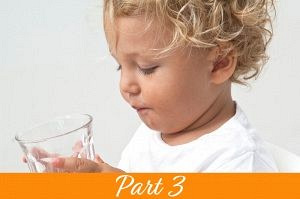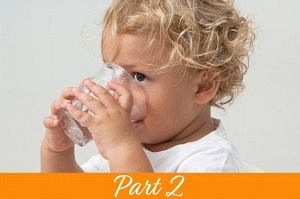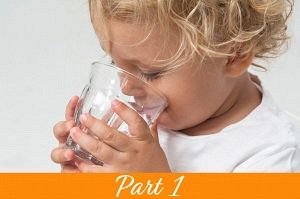"Strategies for the different areas of oral motor weakness were most beneficial. I liked the video examples." Z.R. (Jun. 2025)
"I really enjoyed having a breakdown of how to identify these issues as well as techniques to help. I like that not each technique is a "one size fits all" approach. I liked the video demonstrations." O.H. (May 2025)
"The real world examples and description of teethering was very helpful. The pace, the content, and the learning style was all effective." K.Z. (May 2025)
"I really enjoyed learning exercises, massages, and therapy techniques to help my students with feeding disorders. I liked the therapy techniques and videos showing how to do some of them." Y.T. (May 2025)
"All aspects of the course were very helpful! I liked the visuals/videos, handouts, and hands-on practice." H.W. (Apr. 2025)
"I enjoyed the discussion on tethering. I liked the course's accessibility." T.G. (Apr. 2025)
"It was beneficial to discuss the correlation between muscles and deficits that we see when doing the assessment. I liked that the course was interactive." A.C. (Mar. 2025)
"CN and musculature as well as signs and symptoms. Videos to analyze what was happening." N.S. (Mar. 2025)
"Some of the techniques and exercises were very helpful and I am looking forward to utilizing what I've learned. I liked the lab exercises because they gave me personal experience to replicate what my patients might feel or be doing and how to better explain things to them." K.W. (Feb. 2025)
"The discussion on different techniques to help my clients was helpful. I liked the relevance to my practices and the presenter's way of explaining the information with examples." F.M. (Jan. 2025)
"Therapy activities based on area of concern were helpful and I liked that she broke down each section into different topics. The course was easy to follow and she provided labs and example videos." E.C. (Jan. 2025)
"Beneficial use of tethering for chewing and tongue lateralization versus only using chewy tubes. I enjoyed the wealth of information of the breakdown of the why behind tongue movement, lip movement, jaw movement, and so forth." H.M. (Jan. 2025)
"Assessment, practice, and therapeutic application were all great. I liked the video examples." C.M. (Jan. 2025)
"All of the information was beneficial. The course was well structured. Easy to follow, and my notes will be easy to navigate in the future." S.K. (Jan. 2025)
"Specific treatment techniques aimed at varying structures needed for swallowing. I liked the powerpoint to follow along with." H.M. (Jan. 2025)
"I liked everything! This course helped me better identify feeding issues, and paired well with treatment strategies!! VERY thorough!" A.M. (Jan. 2025)
"Excellent review on oral-motor structure and mechanics as well as techniques to improve deficits." B.B. (Dec. 2024)
"I work with kids with feeding issues so all the strategies and techniques are going to help me to provide a better intervention. I liked the way presenter approached each part. What are the symptoms, causes, functional practice, and the intervention." L.V. (Dec. 2024)
"I enjoyed all of this course. The information was very easy to follow." D.J. (Dec. 2024)
"I liked the specifics throughout the course and organized presentation." P.W. (Dec. 2024)
"All the information was just amazing. I especially liked the details about the connection between physiology and difficulties." V.C. (Dec. 2024)
"Beneficial emphasis on integrating skills of all oral structures. I enjoyed the literature review citations." C.J. (Nov. 2024)
"Therapy practices and application were beneficial. I liked the application slides and video examples." A.G. (Nov. 2024)
"The therapeutic techniques in particular were helpful. I liked how in-depth the course went." O.M. (Nov. 2024)
"Discussing signs and symptoms was beneficial." L.R. (Nov. 2024)
"It was all so helpful. I work with birth to 3 and this course helped put swallowing skills into perspective." K.W. (Nov. 2024)
"How to apply specific interventions for each area of deficit, especially interventions directly related to tone. The organization of the materials was very easy to follow." T.H. (Nov. 2024)
"Therapy strategies provided were beneficial. Helpful information." E.H. (Nov. 2024)
"I liked the video demonstration and self-eating analysis." A.P. (Oct. 2024)
"Therapy techniques to progress textures were beneficial. I liked the handouts." H.B. (Oct. 2024)
"The examples helped with the comprehension of information." C.H. (Oct. 2024)
"I appreciated how the course was organized, going through the different structures in detail. I will be reviewing the course again and taking more detailed notes after becoming familiar with the content this time around. I appreciated the structure of the course and the videos." B.J. (Oct. 2024)
"Identifying deficits and how to address them. The level of breakdown for each structure involved in swallowing was beneficial." A.W. (Oct. 2024)
"Therapy techniques were helpful. I liked the lab practice and video demonstrations." E.L. (Oct. 2024)
"Great background on the tongue and oral motor exercises, how to use what exercise when. The course was clear, easy to listen to." S.P. (Sep. 2024)
"The discussion on chewing was helpful. I liked that I could watch the course content when I wanted." K.K. (Sep. 2024)
"Practical therapeutic strategies. I liked the videos and explanations." E.R. (Aug. 2024)
"The therapeutic strategies were helpful. Very detailed course." M.J. (Aug. 2024)
"I liked the examples that were given and being able to practice." C.J. (Aug. 2024)
"Information about therapy techniques for types of oral phase movements is something I needed more of and feel all of this was very insightful. I also enjoyed the videos showing therapy techniques." S.M. (Aug. 2024)
"All the information was beneficial, and I liked the labs." C.S. (Jul. 2024)
"Oral motor exercises to use with clients were beneficial." T.C. (Jul. 2024)
"I think this course was a very comprehensive overview of the oral motor component of pediatric dysphagia. I liked that the speaker gave practical examples and frequently referenced research." L.P. (Jul. 2024)
"I appreciated the detailed list of considerations for a child with dysphagia. I liked that all the information was on the slides for reference later." B.C. (Jul. 2024)
"Assessment of chewing and massage of tongue base was helpful. The course was very thorough." K.W. (Jul. 2024)
"The lab activities and the therapy strategies were most beneficial. I liked the therapy strategies that I can use both in therapy and in dynamic assessments." E.H. (Jun. 2024)
"The specific exercises to target for each deficit area were helpful. Great case example videos and lab practice activities for a more engaging learning experience." M.B. (Jun. 2024)
"Specific therapeutic oral motor activities. I liked the video demonstrations." J.R. (Jun. 2024)
"The videos to pair with case study questions were very helpful. I also enjoyed learning more about tethering, as I was not very familiar with that prior to this course. I liked the practice assignments, which really helped to instill the topic being covered at that time. It really helped to put me in the mind of some of my patients and the difficulties they encounter with basic skills I take for granted." S.F. (Jun. 2024)
"ALL of the information was beneficial since I work with children with oral feeding disorders. I liked the interactive videos/pictures." B.H. (Jun. 2024)
"Beneficial breakdown of the areas of the oral motor musculature involved in the phases of the swallow. I liked the accessibility of the course as well as the test preview and the slides." B.T. (May. 2024)
"How and what to evaluate and treatment suggestions were beneficial. The course was very informative and well organized." V.H. (Apr. 2024)
"Discussing treatment was helpful. I liked the labs." C.M. (Apr. 2024)
"The portion with tongue and jaw strength was beneficial. I enjoyed the video examples." K.M. (Apr. 2024)
"Specific examples of medical diagnoses and how these things relate to that population helped me make better connections. I enjoyed the videos of treatment modalities in action." C.H. (Mar. 2024)
"I liked the practical intervention strategies. Great organization." A.F. (Mar. 2024)
"Beneficial examples of therapy to explain what to do if these deficits are noted! I enjoyed the videos of actual patients." H.S. (Mar. 2024)
"Labs, videos, and discussion using the case studies were helpful. I liked that I could go at my own speed." K.U. (Mar. 2024)
"I really appreciated the specific treatment strategies for each area. The patient videos were really helpful to reinforce the discussion." J.H. (Jan. 2024)
"Discussing the signs and symptoms of chewing disorders was beneficial. I liked having notes as well as the video." H.S. (Dec. 2023)
"Discussing the massage techniques and how they are effective was helpful. The presentation was clear and practical." M.N. (Dec. 2023)
"I liked the specific examples of deficits and how to provide therapy for them." A.V. (Dec. 2023)
"Therapeutic strategies were helpful. I liked the use of real-life videos of patients." S.P. (Nov. 2023)
"The use of tethering and clinical swallow techniques to support children with difficulties in these areas was beneficial. I liked the ability to go at my own pace." J.C. (Nov. 2023)
"I liked the intervention strategies and the interactive lab practice and video examples." A.A. (Nov. 2023)
"Biting/chewing deficits were beneficial to discuss. I liked the breakdown of different categories." J.J. (Nov. 2023)
"Strategies for therapy. I liked the use of video modeling." E.R. (Nov. 2023)
"The course was organized in a manner that made sense, and I feel like everything was covered, from background to assessment to treatment. The information on tongue tie was particularly helpful for my daily practice." K.S. (Oct. 2023)
"Very informative course. It made me think about some of my current patients and why I am seeing some of the behaviors I am seeing. Discussing postural stability was beneficial because it really emphasized that safe feeding is not isolated to the oral motor system and that the core needs to be addressed as well." C.C. (Oct. 2023)
"I am starting to work with more feeding clients, and this course will improve my therapy techniques. I liked that I could pause and replay sections." A.A. (Oct. 2023)
"I liked the therapeutic exercises. And the applications to daily practice." J.B. (Oct. 2023)
"Providing sensory input to elicit motor response! Presenter did a great job of pacing course, and the order of info was great." J.J. (Oct. 2023)
"Relevant to my caseload." R.R. (Sep. 2023)
"Chewing therapy was beneficial. I liked the videos and lab exercises." R.A. (Sep. 2023)
"The therapeutic strategies were helpful. The presentation was clear and concise. The presenter had great visual slides and examples. I also appreciated the case study scenarios - they were very functional." A.A. (Aug. 2023)
"Helpful information about therapy techniques and how to assess." T.M. (Aug. 2023)
"Jaw section and chewing were beneficial topics. I liked all the different therapy techniques mentioned." M.V. (Aug. 2023)
"I liked the treatment applications and the examples." K.M. (Aug. 2023)
"The exercises were very helpful. Applicability to my practice." A.W. (Aug. 2023)
"The specific information on biting and chewing was beneficial, and I liked the video examples." J.F. (Jul. 2023)
"I liked how presenter broke down all components of the oral phase and described treatment techniques for each area of weakness. I liked the flexibility of completing course on my own time." K.B. (Jul. 2023)
"Chewing and progression of food textures were beneficial topics. I liked all of the information." A.J. (Jul. 2023)
"Buccal tightness and weakness was very interesting. I enjoyed the video inserts. I also enjoyed the research articles." A.S. (Jul. 2023)
"Tongue lateralization was a beneficial topic. I have a student who has very low tone and decreased tongue movement, and I've been struggling to help her increase lateralization/ROM. I appreciated all of the therapeutic techniques discussed - many courses spend a lot of time on background information but don't provide enough info for putting strategies into practice." J.R. (Jul. 2023)
"The therapy recommendations for oral motor exercises were beneficial. I liked that I could take course at my own pace. It was a lot of information to digest. I liked that I could go back and listen to some sections twice to fully comprehend the material." J.M. (Jul. 2023)
"Very clear explanations and instructions with real case video examples. Types of exercises that benefit different problems and how to complete them." G.L. (Jun. 2023)
"Strategies for all areas of deficits. The video examples were helpful to visualize the material being presented." M.R. (Jun. 2023)
"Review of neuromuscular underpinnings was beneficial. I liked the lab activities and video examples." T.L. (May 2023)
"This is the course I needed to understand what to look for and how to improve different deficits for all structures involved with feeding and positioning! I liked the video demonstrations." H.B. (May 2023)
"All of this content was beneficial. I liked the demonstration with real-life clients." H.H. (May 2023)
"Therapeutic approaches to OME and feeding were beneficial. I liked the videos and demonstrations." V.A. (Apr. 2023)
"All topics discussed were beneficial beginning with anatomy and connecting all of the body. I liked the techniques and anatomy." K.G. (Mar. 2023)
"The presenter was very knowledgeable. This course thoroughly reviewed the connection between postural stability and oral motor/feeding deficits with applications that could be used right away with my clients." L.M. (Jan. 2023)
"I enjoyed the practical applications of each activity to demonstrate examples of feeding difficulties among children and how they might benefit from therapeutic techniques." C.C. (Jan. 2023)
"I enjoyed the structure in terms of areas of deficit, followed by signs and symptoms, then the ways in which it can be treated." C.C. (Jan. 2023)
"Function of muscles and how it is applicable to children's development was beneficial. I liked the layout of the course." C.A. (Jan. 2023)
"Good demonstrations and research." K.W. (Jan. 2023)
"I liked all of it. Therapy techniques were beneficial." A.W. (Jan. 2023)
"Practical application and things to look for in order to determine what intervention to apply." M.C. (Dec. 2022)
"Postural stability specifically trunk stability and mobility was beneficial. The examples and video demonstrations were helpful." M.A. (Dec. 2022)
"Each section's practice questions/clinical application questions were helpful to see how the information learned could be used to assess and treat "real-life" patients. I liked the suggested therapeutic activities/strategies included in each section." E.K. (Dec. 2022)
"Therapeutic exercises were beneficial. I liked the course organization." A.R. (Dec. 2022)
"I liked the oral motor treatment strategies, and in-depth discussion about each oral motor structure." A.J. (Dec. 2022)
"Wealth of information. I liked the assessment and therapy strategies looking at different skills in feeding." A.M. (Dec. 2022)
"Oral motor deficits broken down and discussed by anatomical structures." L.H. (Nov. 2022)
"Videos and the way info was broken down was helpful. The presenter's knowledge was great!" K.L. (Nov. 2022)
"The step by step information of all the parts of the mouth involved in eating was good." D.S. (Oct. 2022)
"I loved the thoroughness of explanations for each aspect of oral structure and function and therapeutic interventions for each deficit area." L.G. (Oct. 2022)
"I liked the videos and intervention examples provided. And the information about Buccal and lingual deficits and therapeutic strategies to improve them." K.O. (Sept. 2022)
"Speaker provided multiple examples and the videos were quite good. I got a new perspective on approaches I have been using." D.V. (Sept. 2022)
"I liked the layout and how it moved from one area of concern to the next and ended with chewing. It helped show that there is a lot to consider during feeding other than chewing and swallowing." C.J. (Sept. 2022)
"Gave deficits then specific ways to help remediate. I liked the strategies for tongue lateralization and chewing." A.W. (Sept. 2022)
"I liked the ability to stop and start." E.P. (Aug. 2022)
"I enjoyed the review of the cranial nerves and the therapy techniques presented." M.K. (Jul. 2022)
"Learning exact exercise techniques for lips, cheeks, tongue, jaw to process food textures was beneficial. Also, identifying weaknesses. I liked that the course is online and you can go at your own pace." M.M. (Jun. 2022)
"I liked how intensive the course was regarding recognizing red flag signs. Liked the specific exercises that address each area of concern. The importance of each movement per structure and the clinical signs and symptoms of problems in each area." M.L. (Jun. 2022)
"Practical material. Liked the therapeutic strategies." L.H. (Jun. 2022)
"I liked that the course covered therapy techniques in great detail." S.C. (Jun. 2022)
"The course was very thorough." D.W. (Jun. 2022)
"Wealth of information! And I liked that you could go at your own pace, pausing and giving yourself breaks as needed." L.P. (May 2022)
"All of the course was great, as I am a new SLP going into a clinic with feeding clients. Liked the lab exercises and videos to get a feel and a visual of the information." J.S. (May 2022)
"I found the whole course to be beneficial because I am new to feeding therapy. The demonstration videos were especially helpful." L.B. (May 2022)
"I loved the progression of oral motor skills and exercises from front to back. It was very comprehensive and thorough." H.D. (May 2022)
"I liked the strategies and therapy techniques for chewing as chewing deficits are what I most commonly see." C.B. (May 2022)
"She was very thorough and organized in her content." K.W. (May 2022)
"This entire course was beneficial, as I am beginning my training in order to work with children with feeding and swallowing deficits." M.W. (Apr. 2022)
"I liked the ease of video streaming and testing formats. Also loved the discount to buy all portions of course!" A.S. (Apr. 2022)
"I liked the specific tx techniques & strategies (e.g. lollipop pull for lip closure). Course provided very practical info." O.S. (Apr. 2022)
"Practical therapeutic strategies. I liked that the videos and examples were of actual patients/clients." E.S. (Mar. 2022)
"The exercises were very helpful. I liked the demonstration of exercises and laboratory to demonstrate the deficits and strategies." F.D. (Mar. 2022)
"Videos of actual swallowing therapy were beneficial." S.P. (Feb. 2022)
"I liked the strategies for therapy. The instructor did an excellent job explaining material as well as providing lab work." C.A. (Jan. 2022)
"I liked the discussion of how things interconnect and ways to work on one area while supporting another – how everything was discussed in relation to one another." A.M. (Jan. 2022)
"I am trying to build my base knowledge for pediatric swallowing disorders and this was a great introduction to therapy techniques, with concrete and thorough information about clinical signs, symptoms and impressions. It was extremely informative and I look forward to taking the subsequent parts of the course series!" E.H. (Jan. 2022)
"Very detailed and thorough. I definitely need to take parts 2 and 3 to feel that I have the best base possible for the topic. Use of videos were very helpful to learn the topics, and more would be even better." N.N. (Jan. 2022)
"It was very thoughtfully constructed with the application sections and lab practices. Well organized for immediate clinical use." A.M. (Jan. 2022)
"I am trying to build my base knowledge for pediatric swallowing disorders and this was a great introduction to therapy techniques, with concrete and thorough information about clinical signs, symptoms and impressions. It was extremely informative and I look forward to taking the subsequent parts of the course!" E.H. (Jan. 2022)




